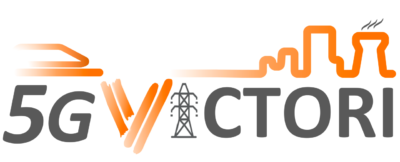Facing increasing energy demand that is driven by digitalization and a growing ICT sector, the European Commission presented the European...
IZT
Institute for Futures Studies and Technology Assessment


The Institute for Futures Studies and Technology Assessment (founded 1981):
1) Integration of vertical use cases
Coordination and integration (requirements, content) of vertical Berlin use cases regarding Digital Sustainable Mobility – Mobility as a Service – MaaS; digital innovative agriculture and Digital Learning and e-education. Examples for Berlin use cases: Door-to-Door services for passenger mobility based on sustainable transport modes, Green-City-cargo application and services. Both use-cases are modules for future integrated MaaS concepts. Berlin use cases for Digital Sustainable Agriculture: Digital herbicides for regional organic agriculture in Berlin and Brandenburg & Innovative distribution network for regional organic agriculture in Berlin & environs. Both use cases are modules for future integrated Digital Sustainable Regional Agriculture concepts; Use cases for Digital Learning and e-education: E-learning and e-education for Berlin universities regarding renewable energies, energy efficiency and resource efficiency and Smart learning and qualification applications for regional craftsman. Both use cases are modules for future Digital Sustainable Learning and Education concepts.
2) Development of a consistent framework for sustainable MaaS
Develop a common framework for the innovative mobility applications and services in terms of sustainable MaaS – Mobility as a Service concepts (MaaS concepts with strong focus on public and active modes of transport, local and regional governance, integrated IT platform solution with open data policy and open access for a great variety of mobility services, PPP concepts for financing, strong integration of transport modes leading to services for seamless transport, integration of green logistics services ….). The implementation of Sustainable MaaS concepts leads to an overall improvement of the sustainability performance of the respective transport and mobility system of a city and / or region.
3) Technology assessment and sustainability impact assessment of 5G high performance networks and innovative applications running on 5G high performance networks. Technology assessment includes technical aspects as e.g. TRL / maturity, development potential, areas of application; carbon footprint, energy performance and efficiency potentials; sustainability impact assessment includes a multi-dimensional assessment scheme taking into account economic criteria (cost efficiency, required investments, compatibility with existing infrastructures, etc.), environmental criteria (energy performance, emission performance, toxicity of required materials, etc.) as well as social criteria (access to services, fair pricing, benefits for urban and rural environments, etc.).
4) Development of innovative business models for new applications running on 5G high performance networks. There will be a special focus on value based business model development – starting from the relevant SDGs – Sustainable Development Goals – and addressing the required sustainability performance and impacts.
Innovative business models for mobility applications are developed on the basis of SDG 11(Inclusive, safe, resilient and sustainable cities and human settlements) and SDG 13 (Combat climate change and its impacts).
Innovative business models for energy applications are developed on the basis of SDG 7 (Access to affordable, reliable, sustainable and modern energy for all), SDG 9 (Resilient infrastructure, promote inclusive and sustainable industrialization and foster innovation) and SDG 13 (Combat climate change and its impacts)
Innovative business models for agriculture applications are developed on the basis of SDG 2 (End of hunger, food security and improved nutrition, sustainable agriculture) and SDG 13 (Combat climate change and its impacts)
Innovative business models for education applications are developed on the basis of SDG 4 (Inclusive and equitable quality education and lifelong learning opportunities for all).
IZT has long-standing expertise in the following areas:
Energy (renewable energies, new energy services, energy management and energy efficiency, energy storage)
Mobility (sustainable mobility, future of railway transport, new concepts for public transport, innovative mobility services, interaction of mobility and IT structures, transport infrastructures
Food & agriculture (sustainable food production, digitalization of agriculture, bio-economy, regional & circular concepts for agriculture, sustainable vegetation management, climate-friendly catering and food)
Green & circular economy (green markets for future technologies, development of integrated industry roadmaps for key industries and technologies, eco balances, energy and resource efficiency, critical resources)
ICT – Information and Communication Technologies (potentials and risks of innovative ICT solutions, energy performance and environmental performance of ICT, green IT, social acceptance)
E-Learning and E-Education (e-learning concepts and platforms for pupils with special focus to energy and resource management and efficiency, E-learning and e-training for craftsmen; mobile applications for e-learning)
IZT uses a broad spectrum of quantitative and qualitative methods developed in the areas of technology assessment, future research, sustainability research. These methods comprise e.g.
Facing increasing energy demand that is driven by digitalization and a growing ICT sector, the European Commission presented the European...
Large scale trials for Railway, Energy, Media and Factories of the Future planned 5G-VICTORI is funded by the EU program...

This project has been funded by the European Commission as part of the H2020 program, under the grant agreement 857201.


© 2020 5G-VICTORI
